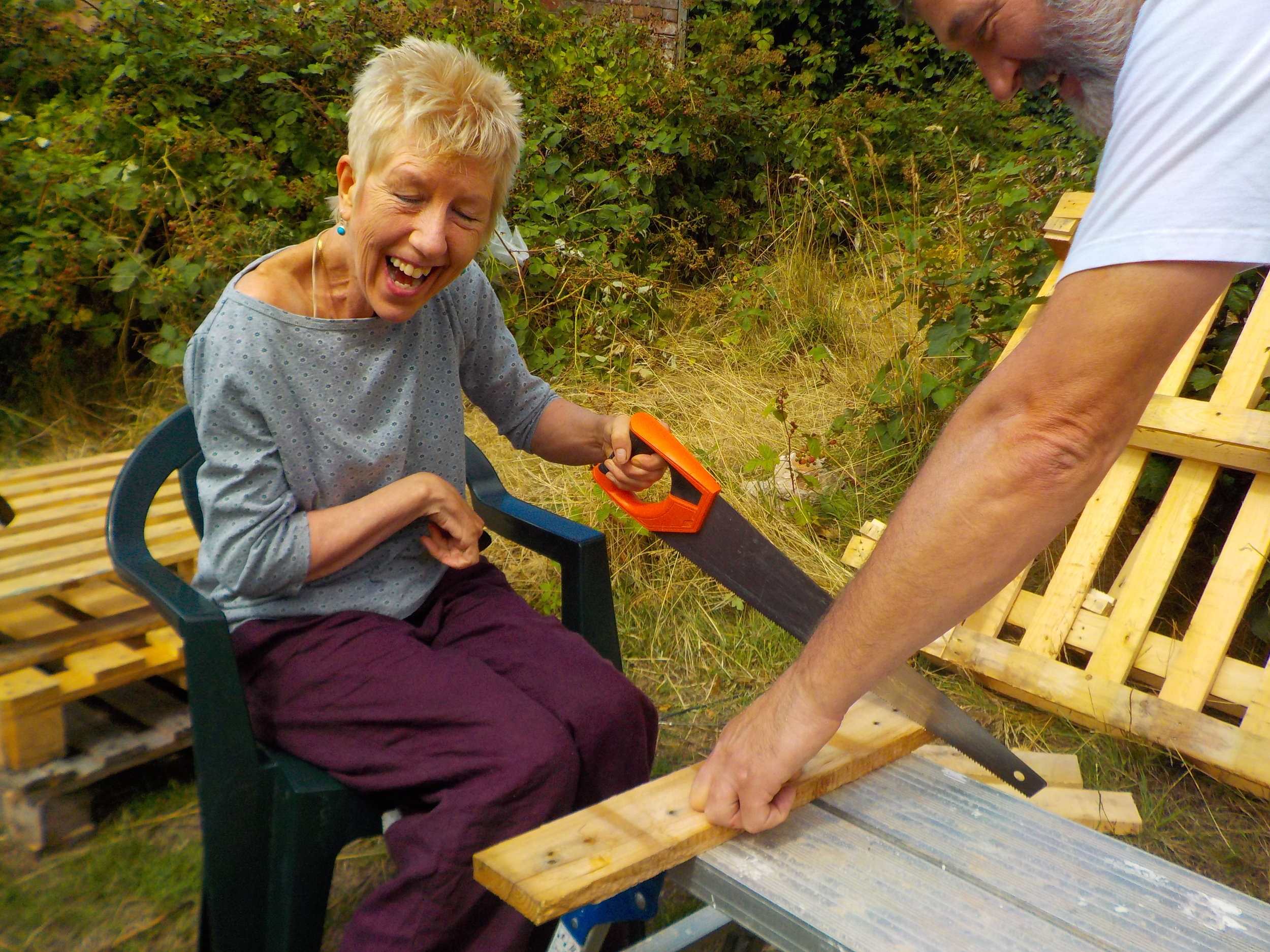Growing A Therapeutic Garden
FUNDING
DATE
June 2017 - ongoing
GROUPS
The Brain Charity
The Stroke Association
Moving on with Life & Learning
“The project has been hugely beneficial to our service users and it’s been a pleasure to watch them expand their skills and learn new things.”
Social and therapeutic horticulture workshops, working with adults with learning disabilities and a variety of physical injuries and health conditions. The sessions focus on using growing, gardening and a range of other activities to aid rehabilitation and contribute to wellbeing and connecting with nature in a supportive environment. We used a variety of approaches and practitioners to deliver a multi-disciplinary programme of activities within the walled garden, from pilates to nature art to outdoor cookery. Of course, the core activity was growing, tending and harvesting the constant supply of organic fruit and vegetables, herbs and edible flowers. And tea. Lots and lots of tea.
The workshops were intended to enable people with long term health conditions and disabilities to get outdoors in the fresh air and connect with nature in a supportive environment. We worked with different practitioners to explore how we could add value to the already beneficial and therapeutic practice of gardening. For instance, a trained physiotherapist assessed participants and advised on how to adapt tasks to different conditions to use gardening as a form of physical rehabilitation in cases of physical injury or conditions such as stroke, brain tumour etc. A tai chi practitioner passed on physiological exercises and movements that can assist in flexibility and wellbeing. An artist worked with the groups to produce inspirational work from natural sources and encourage creative freedom and self-expression. Outdoor cooking, making natural inks, processing herbs and flowers - the project takes a multi-disciplinary approach to the gardening environment.
Many of the group have been attending since we started in 2017, coming weekly for 6 months of the year, Spring to Autumn. We meet in the garden come rain or shine, with rarely a session cancelled except in case of high winds.
There were unforeseen benefits from the activities, such as linguistic benefits to stroke survivors who may find aspects of communication difficult. The neutral setting of the garden and the shared goals of gardening allowed a good context for developing, or re-learning, communication skills. Similarly, the physical tasks provided a functional setting, a reason if you like, to exercise the body and muscles without being focussed on that as an outcome. Unsurprisingly, the social and connective aspect of the activities were very important to participants. Each individual group developed strong bonds but also when we brought the groups together for events and celebrations, the outcomes were multiplied.
Some initial forays into intergenerational groupings were very exciting and in the 2nd season of the project we brought therapeutic horticulture and tai chi groups together with the children’s outdoor clubs. There was mutual respect and interest between the groups, and there appeared to be positive outcomes on both sides. The project intends to continue developing opportunities for intergenerational communication and connection, in a supported and protected environment.
Outcomes to 2020:
1123 cuppas
from our trusty kelly kettle
51 individuals
participated in the sessions
656 hours
spent outdoors (some in sunshine)
1.
IMPROVING HEALTH & WELLBEING through physical activity and stress reduction as well as the mental and physical health benefits of fresh air and sunshine. Additional social, speech and cognitive benefits of the sensory and social setting.
2.
BUILDING RELATIONSHIPS with local charities and organisations to demonstrate the positive outcomes that can be obtained through social and therapeutic horticulture practice and create opportunities for continued collaborations and partnerships.
3.
DEVELOPING GOOD WORKING PRACTICES with participants and evaluating the outcomes of different approaches to discover more about some of the practical issues and requirements needed to support them effectively and for the garden to work as a therapeutic space.
























